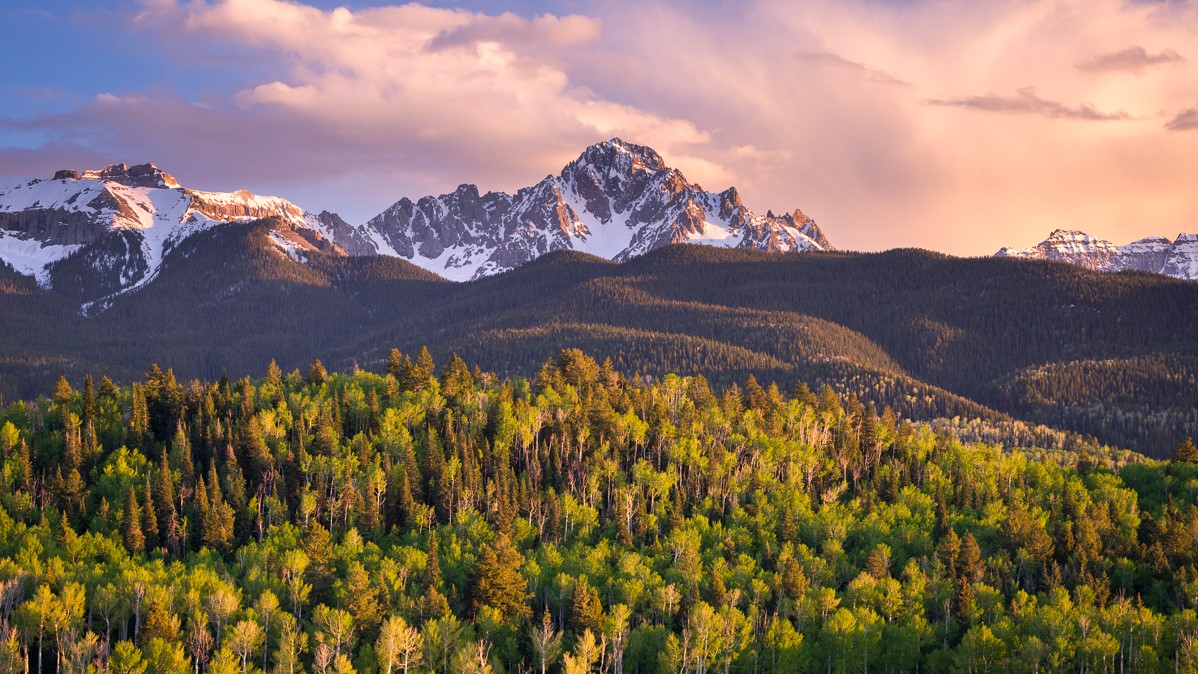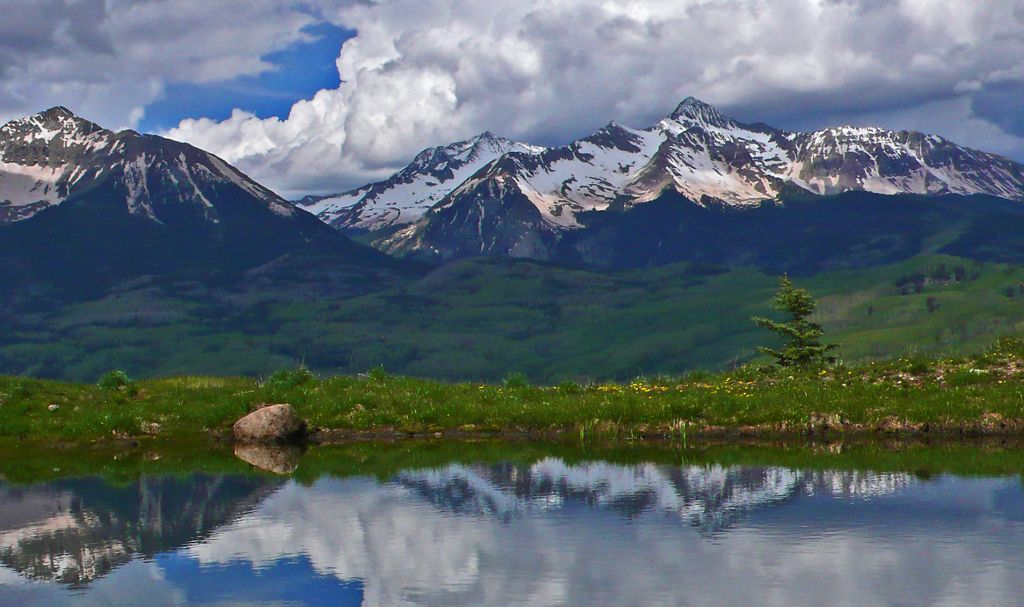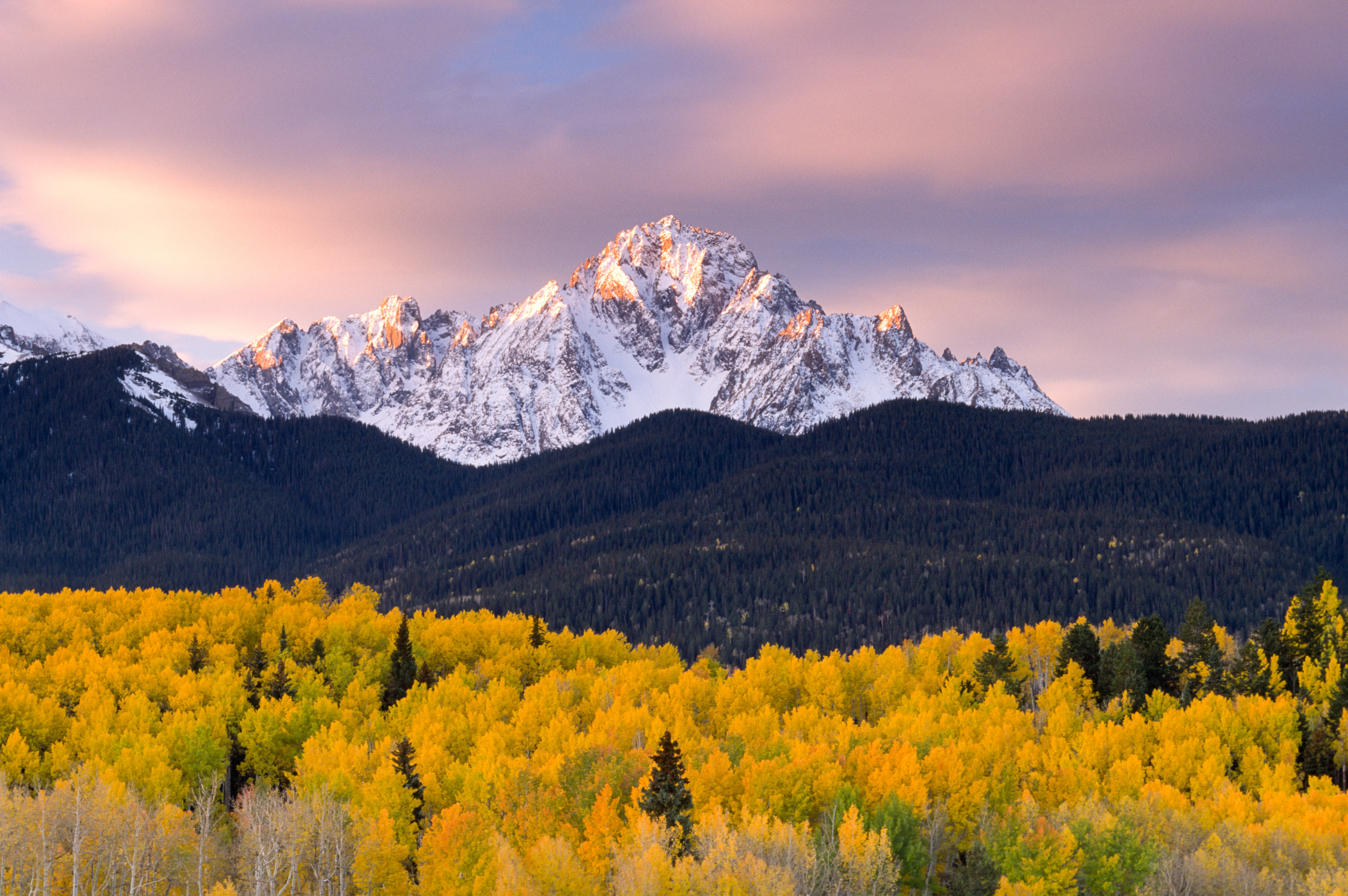Legislation re-introduced days after President Biden’s bold climate executive orders
The Colorado Outdoor Recreation and Economy Act was introduced today in the U.S. Senate and House by Sens. Michael Bennet and John Hickenlooper and Reps. Joe Neguse, Diana DeGette, Ed Perlmutter and Jason Crow. The introduction comes after President Joe Biden pledged to protect 30 percent of our country’s lands and waters by 2030, as part of a broader strategy to combat climate change. Preserving Colorado’s public lands will help achieve the 30×30 goal.
During the 116th Congress, the CORE Act passed in the House with bipartisan support twice, most recently as part of the National Defense Authorization Act (NDAA). The bill would preserve roughly 400,000 acres of public lands, including the Continental Divide and Camp Hale, Wilderness in the San Juan Mountains, the Thompson Divide, and officially define the boundaries of Curecanti National Recreation Area. These areas include some of Colorado’s most iconic, historic, and ecologically significant public lands, and their preservation would bolster the region’s world-renown outdoor recreation opportunities, supporting local economies, preserving critical wildlife habitat, and honoring our country’s veterans.
“The passage of the CORE Act, specifically the Camp Hale National Historic Landscape designation, means the world to me,” said Bradley Noone, 10th Mountain Division Veteran. “As a 10th Mountain Division veteran of the war in Afghanistan, I have used these areas as my gym, my church, my therapist, my playground, and my office. Please honor the legacy of the surviving veterans who trained here for World War II with permanent protections and funding.”
The legislation is a product of a decade of collaboration and compromise by small business owners, veterans, sportspeople, local elected officials and municipalities, outdoor recreationists, community members, and conservation organizations. In fact, polling has consistently shown strong support for passing the CORE Act. Both the New Bridge Strategies poll commissioned by the CORE Act Coalition, and the 2020 Conservation in the West poll, found about two-thirds of those surveyed supporting the legislation.
Summit County, Colorado Commissioner Tamara Pogue, said “Public lands are the backbone of our mountain communities. The CORE Act will protect our public lands and outdoor recreation opportunities to boost the economy as we recover from the impact of the COVID-19 pandemic. Thank you to Senators Bennet and Hickenlooper for reintroducing this important piece of legislation. I look forward to it passing in 2021.”
The outdoor recreation industry is an economic powerhouse in Colorado, contributing $62 billion annually, and is responsible for a half million jobs, according to Colorado Parks and Wildlife. This past year has shown the world how important public lands and waters are, as throughout the COVID-19 pandemic, more and more people have turned to nature for their physical, emotional, and mental health. However, with that increase of attention and visitation comes the awareness that we need more protected lands and waters, not less.
“It is fantastic to see the CORE Act being reintroduced in Congress. Given that the legislation has been reintroduced very early in the 117th Congress, this provides a two-year window in which the prospects of the CORE Act being passed look very favorable. Among the many good things that the CORE Act will bring to Colorado, it will be so important to finally have authorizing legislation for Curecanti National Recreation Area for the first time since it was established in 1965,” added Bruce Noble, a retired National Park Service superintendent for Curecanti National Recreation Area.
The bill would preserve healthy wildlife habitat by protecting key areas from road building, new mines and oil and gas drilling, and other activities that would degrade wildlife habitat and watershed values. It would also safeguard backcountry hunting opportunities and important big game habitat on our public lands across the state, in addition to protecting habitat for black bear, bighorn sheep, mountain goat, moose, deer, elk, lynx, sage grouse, and wild turkey. And it would preserve the land bridge and critical wildlife migration corridor over Interstate 70 at the Eisenhower Tunnel.
“The reintroduction of the CORE Act represents an opportunity to use our local public lands to help us solve the climate crisis,” said Chris Caskey, Founder of Delta Brick and Climate Co. “As a small western slope business, we recognize the importance of protecting our public lands for future generations. Furthermore, the CORE Act clarifies how we can mitigate waste methane, reducing greenhouse gas emissions and creating jobs. With the support of a broad range of diverse stakeholders, the passage of the CORE Act is long overdue, and is an investment in Colorado’s future.”
Given the broad support, decades-long collaboration, and the existential threat of climate change, the CORE Act coalition is urging Congress to swiftly move and pass this legislation.
For additional statements of support, please see this quote sheet.
Legislative Background on the CORE Act:
- San Juan Mountains – The San Juan Mountains Wilderness Act has enjoyed remarkably consistent and broad support, including all three counties where the lands are located, five major local municipalities, over 120 local businesses, and a wide array of affected stakeholders. These stakeholders include ranchers, sportsmen, private landowners, recreation groups, the area’s only operating mining company, and the region’s biggest ski resort. The bill was most recently introduced by Sen. Michael Bennet in April 2018 (S. 2721) and has been passed by both the House Natural Resources Committee (Fall 2010) and Senate Energy and Natural Resources Committee (Fall 2013). Most recently, a Senate hearing was held on the bill in August of 2018.
- Continental Divide – The Continental Divide Recreation, Wilderness and Camp Hale Legacy Act was previously introduced by Sen. Bennet and former Rep. Jared Polis in January 2018. The bill has enjoyed support from the relevant boards of county commissioners, local governments, ski areas and local businesses, and recreation organizations including hikers, mountain bikers and climbers. The bill was also supported by the Tenth Mountain Division Foundation for its designation of Camp Hale as the nation’s first national historic landscape.
- Thompson Divide – The Thompson Divide Withdrawal and Protection Act has enjoyed consistent and broad support from local governments and diverse stakeholders for years. All three counties where the lands are located, eight local municipalities, and a wide array of local businesses and organizations support a mineral withdrawal of the Divide and have supported previous versions of this bill. Individual supporters come from all walks of life and all political persuasions, and include ranchers, sportsmen, private landowners, recreation groups, small business owners, skiing companies, and many more. A version of the Thompson Divide Withdrawal and Protection Act was most recently introduced by Sen. Bennet in March of 2017 (S. 481).
- Curecanti National Recreation Area – The Curecanti National Recreation Area has never been established by Congress, but offers an abundance of outdoor recreation opportunities in southwest Colorado including boating, hiking, and fishing.
Photo credit: Jack Brauer




